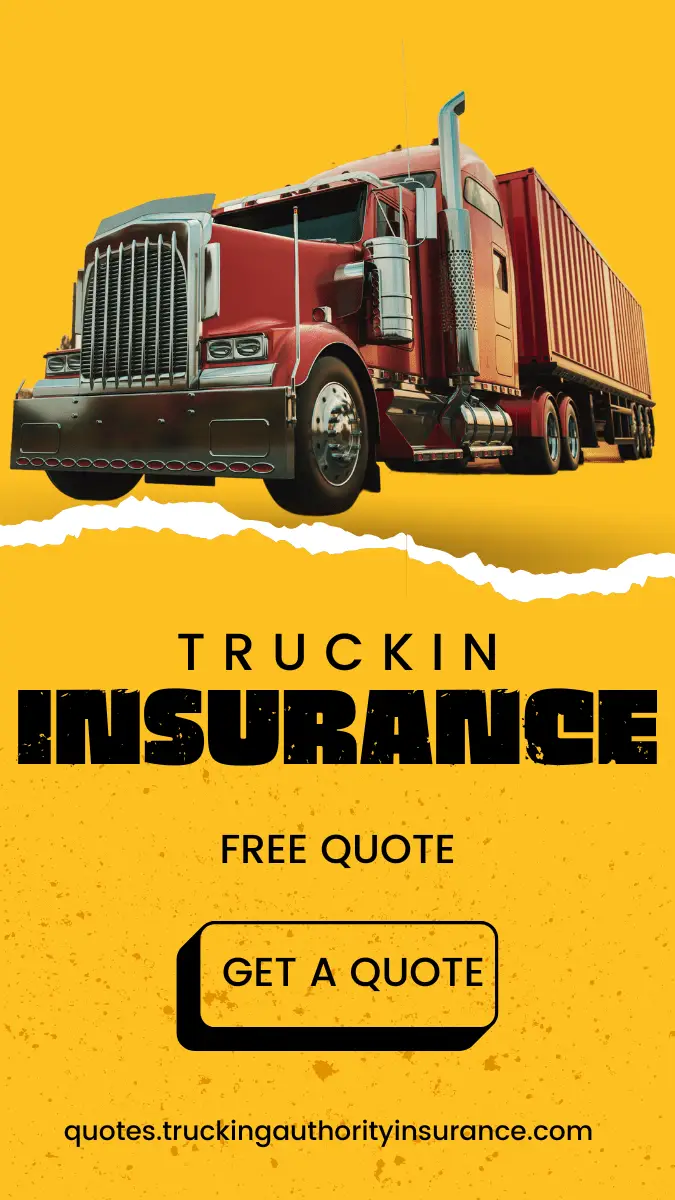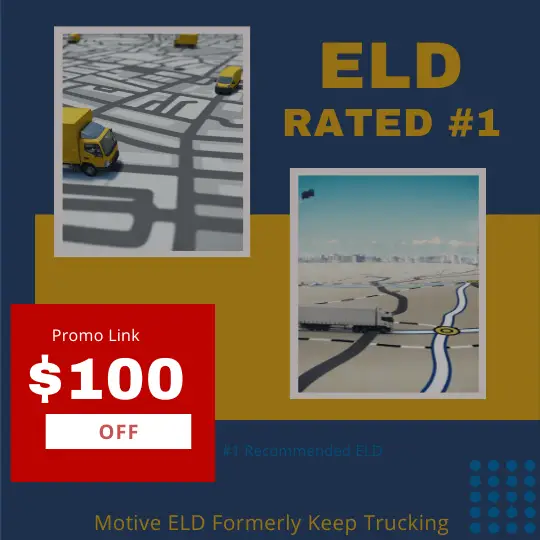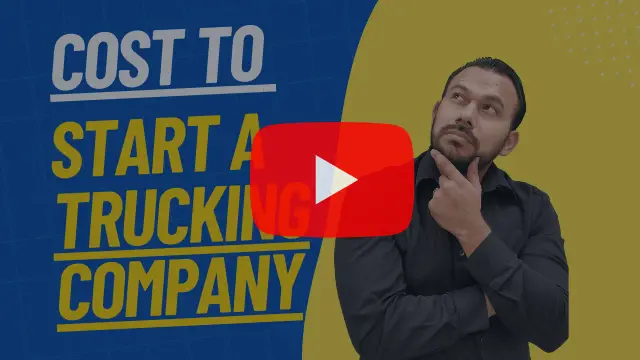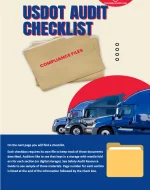Starting or expanding your trucking business in the Grand Canyon State? Navigating the world of commercial trucking regulations can seem daunting, but securing the correct permits and authorities is the bedrock of a legally compliant and successful operation. Understanding the requirements for obtaining your USDOT and MC number in Arizona is a vital first step, whether you plan to haul freight across state lines or operate exclusively within Arizona’s diverse landscapes. These federal identifiers are not just bureaucratic hurdles; they are essential for safety compliance, operational legitimacy, and avoiding costly penalties.
This comprehensive guide will walk you through the critical differences between USDOT and MC numbers, detail the step-by-step process for obtaining federal authority, clarify Arizona-specific intrastate requirements, and outline the ongoing compliance obligations you’ll need to manage. We’ll also cover essential state-level registrations like IRP and IFTA, and explain how expert assistance can streamline this entire process, letting you focus on building your trucking enterprise. Let’s get your Arizona trucking venture on the road, correctly and confidently.
Understanding the Essentials: USDOT vs. MC Number in Arizona
Before diving into the application process, it’s crucial to understand the distinct roles of the USDOT number and the MC number, especially concerning operations within or originating from Arizona. While often discussed together, they serve different federal regulatory purposes.
What is a USDOT Number?
Think of the USDOT number as your company’s unique identifier within the Federal Motor Carrier Safety Administration (FMCSA) system. Its primary purpose is safety tracking. The FMCSA uses this number to monitor a company’s safety record, compliance reviews, audit results, and accident investigations. In Arizona, you generally need a USDOT number if your commercial vehicle is used for interstate commerce (crossing state lines) or for specific types of intrastate commerce. Federal regulations typically require a USDOT number for intrastate operations if your vehicle has a gross vehicle weight rating (GVWR) or gross combination weight rating (GCWR) of 10,001 lbs or more, transports hazardous materials requiring placarding, or is designed to transport more than 8 passengers (including the driver) for compensation, or more than 15 passengers (including the driver) not for compensation. You can find more details directly from the FMCSA .
What is an MC Number (Operating Authority)?
An MC number, also known as Operating Authority, grants permission from the FMCSA to transport regulated commodities for-hire in interstate commerce. Unlike the USDOT number which identifies your business for safety, the MC number defines the type of operation you’re authorized to run and the cargo you can haul across state lines. Common types include Motor Carrier of Property (except Household Goods), Motor Carrier of Household Goods (Moving Companies), and Broker of Property. If your Arizona-based business operates as a for-hire carrier transporting goods belonging to others across state lines, you will likely need an MC number in addition to your USDOT number. However, private carriers (transporting their own goods) or carriers operating purely within Arizona (intrastate) typically do not need an MC number, although they may still need a USDOT number and specific Arizona state permits.
Arizona-Specific Considerations
It’s important to note that while Arizona primarily follows federal guidelines for USDOT number requirements, specific intrastate operating authority and permits are managed by the Arizona Department of Transportation Motor Vehicle Division (ADOT MVD). We will delve into these specific Arizona intrastate requirements later in this guide.
Step-by-Step Guide: Obtaining Your Federal Authority (USDOT & MC)
Securing your federal operating authority involves several key steps managed through the FMCSA. Accuracy and thoroughness are paramount throughout this process to avoid delays or application rejection.
Step 1: Determine Your Operation Type
Before you begin any application, clearly define whether your trucking business will operate interstate or intrastate.
- Interstate Commerce: This means you will transport cargo or passengers across state lines (e.g., from Arizona to California) or transport cargo that originates or terminates outside the state, even if your portion of the trip is entirely within Arizona. Most carriers needing both USDOT and MC numbers fall into this category.
- Intrastate Commerce: This means you will operate exclusively within the borders of Arizona, transporting goods that both originate and terminate within the state. While you might still need a USDOT number depending on your vehicle and cargo (as discussed previously), you generally won’t need an MC number for purely intrastate operations. However, specific Arizona state authority will be required, which we cover in the next section. Getting this distinction right is crucial as it dictates the specific registrations and authorities you need.
Step 2: Prepare Your Information
Gathering necessary information beforehand will streamline the application process. You will typically need:
- Business Structure: Know how your business is legally structured (Sole Proprietorship, Partnership, LLC, or Corporation). If you haven’t formed your business yet, consider resources like Truckers Authority’s LLC for Trucking Company Guide or formation services.
- Employer Identification Number (EIN): Obtain this federal tax ID from the IRS if you haven’t already. Sole proprietors without employees might use their SSN, but an EIN is generally recommended for businesses.
- Company Details: Names and addresses of company officials, principal place of business, mailing address, etc.
- Operational Details: Types of cargo you plan to haul, number of vehicles, driver information (if available).
Step 3: Apply via FMCSA Unified Registration System (URS)
The primary way to apply for both your USDOT number and MC number (Operating Authority) is through the FMCSA’s online Unified Registration System (URS) . This system consolidates various registration requirements.
- Application Process: Carefully complete the online application, providing accurate details about your business structure, operational scope, cargo types, and safety certifications. The information previously gathered in the MCS-150 form is now integrated into the URS application.
- Fees: Be prepared to pay application fees. As of early 2025, the standard fee for obtaining operating authority (MC number) is typically around $300 per authority type, though this can change. There might not be a separate fee for the USDOT number itself when obtained through URS with operating authority.
- Processing Time: After submission, expect a processing period. Obtaining just a USDOT number can be quick, often issued immediately or within days. However, obtaining an MC number involves a vetting period and can take several weeks (typically 20-25 business days or longer) before it becomes active.
Step 4: Meet Insurance Requirements
Before your MC number can become active, you must have the required insurance coverage filed electronically with the FMCSA by your insurance provider.
- Liability Insurance: The federal minimum for general freight is typically $750,000 (Form BMC-91 or BMC-91X). However, most brokers and shippers require $1,000,000.
- Cargo Insurance: While not always federally mandated for activation, cargo insurance (Form BMC-34) is essential for protecting the goods you haul and is usually required by customers (typically $100,000 minimum).
- Filing: Your insurance company must file proof of coverage directly with the FMCSA. You cannot file this yourself. Explore options with providers specializing in trucking insurance; Truckers Authority can also assist with finding suitable trucking insurance . More details can be found on the FMCSA Insurance Requirements page .
Step 5: Designate Process Agents (BOC-3 Filing)
All interstate for-hire carriers must designate a process agent in each state they operate in or travel through. A process agent is a person or company designated to receive legal documents on your behalf in that state. This is filed using Form BOC-3 (Designation of Agents for Service of Process).
- Requirement: This is mandatory for activating your MC number.
- Filing: The BOC-3 must be filed electronically by a designated process agent company. You cannot file this yourself. Truckers Authority offers a reliable BOC-3 filing service to meet this requirement efficiently.
Step 6: Awaiting Your Authority Grant
After submitting your application, fees, insurance, and BOC-3, there’s a waiting period. The FMCSA reviews your application (vetting) and publishes your application for a brief period to allow for public comment or protests. Assuming no issues arise, your MC number will be granted and become active, allowing you to legally operate in interstate commerce.
Arizona Intrastate Authority: Operating Solely Within State Lines
While the USDOT and MC numbers primarily address federal regulations for interstate commerce, operating a commercial vehicle exclusively within Arizona borders brings state-specific rules into play, managed by the Arizona Department of Transportation Motor Vehicle Division (ADOT MVD). If your trucking business involves transporting goods that both originate and terminate within Arizona, without crossing state lines at any point, you are engaged in intrastate commerce.
Unlike the federal system’s distinct MC Operating Authority for for-hire interstate carriers, Arizona doesn’t necessarily have a single, equivalent “Intrastate Operating Authority” permit that all intrastate carriers must obtain. Instead, compliance for intrastate operations typically involves:
- USDOT Number (If Applicable): As mentioned earlier, federal rules may still require you to obtain a USDOT number even for intrastate operations, depending on your vehicle’s weight (GVWR/GCWR over 10,000 lbs), passenger capacity, or if you transport hazardous materials requiring placarding. Check the FMCSA criteria to confirm if this applies to your specific intrastate operation.
- Arizona Commercial Vehicle Registration: Ensuring your vehicles are properly registered as commercial vehicles with the ADOT MVD is fundamental. This involves specific commercial plates and weight-based fees.
- Specific Permits: Depending on your vehicle’s size, weight, or the nature of your trip, you might need specific permits from ADOT MVD. This could include overweight/oversize permits or temporary registration permits if applicable. The primary resource for determining necessary permits is the ADOT MVD Commercial Vehicle Permits section.
- Intrastate CDL: Arizona offers an intrastate Commercial Driver’s License (CDL) for drivers aged 18-20, allowing them to operate commercial vehicles within the state only, unlike the standard interstate CDL which requires drivers to be 21.
Need Help Obtaining Your Permits?
Get Your Trucking Authority Today!
We Can Help Setup Your USDOT & MC Number.
Speak With Our Experienced Permit Professionals That Can Help You Every Step Of The Way.
Call Us Today! Live Agents Are Standing By.
Insurance Requirements:
Arizona also mandates specific insurance levels for intrastate commercial carriers, which may differ from federal interstate requirements. It’s crucial to consult with ADOT MVD resources or an insurance professional specializing in Arizona trucking to ensure you have adequate coverage for your specific operation type and vehicle weight.
Navigating these state-specific requirements is crucial for purely Arizona-based operations. Always refer to the official ADOT MVD Commercial Vehicle Permits page for the most current information and contact details if you have specific questions about your intrastate operation.
Essential Post-Authority Compliance in Arizona
Obtaining your USDOT and MC numbers is just the beginning. Maintaining compliance requires ongoing attention to several critical programs and updates, particularly during your initial operating period. Both federal and Arizona state agencies monitor carriers closely.
New Entrant Safety Audit
Once you receive your USDOT number, you are automatically enrolled in the FMCSA’s New Entrant Safety Assurance Program. This program is designed to educate new carriers and ensure they have basic safety management controls in place.
- Purpose: To verify your understanding of and compliance with federal safety regulations.
- Timeline: The safety audit typically occurs within the first 12 months of operation for property carriers (trucks) and within 4 months for passenger carriers (buses). You remain a “new entrant” for 18 months.
- Process: An auditor (often from ADOT working on behalf of FMCSA) will review your records related to driver qualifications, hours of service (HOS), vehicle maintenance, accident reporting, and drug and alcohol testing programs. They will assess your safety management practices.
- Outcome: Passing the audit is mandatory to receive permanent operating authority. Failure can lead to revocation of your USDOT number. Resources are available from both the FMCSA New Entrant Program and the ADOT New Entrant Program . Preparing thoroughly is key; Truckers Authority offers guidance and audit preparation assistance to help you navigate this crucial step.
Drug and Alcohol Testing Program
Compliance with FMCSA drug and alcohol testing regulations (49 CFR Part 382 and Part 40) is non-negotiable for anyone operating a Commercial Motor Vehicle (CMV) requiring a Commercial Driver’s License (CDL).
- Mandatory Testing: Includes pre-employment drug tests, random testing throughout the year, post-accident testing under specific circumstances, reasonable suspicion testing, return-to-duty testing, and follow-up testing.
- Consortium Requirement: Owner-operators and companies with only one driver must enroll in a DOT-approved drug and alcohol testing consortium. This ensures compliance with random testing requirements. Truckers Authority provides consortium enrollment and management services to simplify this process.
- Clearinghouse: Employers must query the FMCSA Drug & Alcohol Clearinghouse for new hires and annually for existing drivers, as well as report any violations.
Unified Carrier Registration (UCR)
If you operate commercial vehicles in interstate or international commerce, you must register your business annually under the Unified Carrier Registration (UCR) Agreement. Fees are based on the number of commercial motor vehicles you operate.
- Requirement: Applies to virtually all interstate carriers (private, for-hire, exempt), brokers, freight forwarders, and leasing companies.
- Registration: You must register and pay fees annually through the official UCR portal . Registration typically opens in the fall for the upcoming year. Truckers Authority can handle your UCR filing to ensure timely compliance.
Biennial Updates (MCS-150)
All entities with a USDOT number must update their registration information every two years via the MCS-150 form. This ensures the FMCSA has current information about your operation.
- Requirement: Mandatory update based on the last two digits of your USDOT number, determining your filing month and year.
- Process: Updates can be filed online through the FMCSA Registration portal . Failure to update can lead to deactivation of your USDOT number and potential fines.
Staying on top of these compliance requirements is essential for uninterrupted operation and avoiding penalties. Integrating these processes into your regular business operations from the start is highly recommended.
- Arizona-Specific Registrations: IRP, IFTA, and Vehicle Plates
Beyond federal authority and basic compliance, operating commercial vehicles in or through Arizona often requires specific state-level registrations related to vehicle plates and fuel taxes, particularly for interstate carriers. These are managed by the Arizona Department of Transportation (ADOT).
International Registration Plan (IRP) – Apportioned Plates
If your commercial vehicles travel in two or more member jurisdictions (most US states and Canadian provinces), you’ll likely need to register them under the International Registration Plan (IRP). This agreement allows you to operate across state lines with a single registration (apportioned plate) issued by your base jurisdiction (home state).
- Purpose: Simplifies the process of registering commercial vehicles that operate interstate by consolidating registration fees and distributing them among the jurisdictions where the vehicle travels.
- Who Needs It in Arizona: Interstate carriers based in Arizona, or carriers based elsewhere but operating frequently in Arizona, will typically register through IRP. If Arizona is your base state, you apply through ADOT.
- Application: The process involves detailing your fleet information and estimated mileage in each jurisdiction. Arizona provides resources and application details on the official ADOT IRP page .
- Assistance: Managing IRP accounts and renewals can be complex. Truckers Authority offers IRP registration services to help ensure your fleet is properly registered.
International Fuel Tax Agreement (IFTA)
Similar to IRP for registration, the International Fuel Tax Agreement (IFTA) simplifies the reporting and payment of fuel use taxes for motor carriers operating in multiple member jurisdictions.
- Purpose: Allows carriers to obtain one fuel tax license issued by their base jurisdiction and file a single quarterly tax report covering fuel use in all IFTA member jurisdictions.
- Who Needs It in Arizona: Interstate carriers based in Arizona operating qualified motor vehicles (generally, vehicles over 26,000 lbs GVWR or with three or more axles) need an Arizona IFTA license. Carriers based elsewhere but traveling through Arizona will report their Arizona mileage and fuel purchases through their base state’s IFTA license.
- Application & Reporting: Arizona-based carriers apply for their IFTA license and decals through ADOT. Quarterly tax reports detailing miles traveled and fuel purchased in each jurisdiction are mandatory. Find details on the ADOT IFTA page .
- Assistance: Accurate IFTA reporting is crucial to avoid penalties. Truckers Authority provides IFTA registration and reporting services to keep you compliant.
Arizona Commercial Vehicle Registration (Base Plates)
For commercial vehicles that are based in Arizona and operate only within the state (intrastate), or for vehicles using Arizona as their base state under IRP, standard Arizona commercial vehicle registration is required.
- Process: This involves obtaining Arizona commercial license plates through the ADOT MVD. Fees are typically based on the vehicle’s weight and type.
- Information: Details on requirements, fees, and application processes can be found on the ADOT Commercial Vehicle Registration page .
Properly managing IRP, IFTA, and base plate registrations is essential for legal operation and avoiding costly roadside issues. These registrations work in tandem with your USDOT and operating authority.
Why Partner with Truckers Authority?
As you can see, navigating the maze of federal and Arizona-specific trucking regulations involves numerous steps, critical deadlines, and potential pitfalls. From initial USDOT and MC number applications to ongoing compliance like UCR, IFTA, IRP, and the New Entrant Safety Audit, ensuring every detail is correct is vital for your business’s success and legality. Mistakes can lead to costly delays, fines, or even suspension of your operating authority.
This is where partnering with experts like Truckers Authority makes a significant difference. We specialize in simplifying the complex world of trucking authority and permits, allowing you to focus on what you do best – running your trucking business.
Here’s how we help Arizona truckers:
- Expertise & Accuracy: Our team stays up-to-date on the latest FMCSA and ADOT regulations, ensuring your applications and filings are accurate the first time, minimizing errors and delays.
- Time Savings: We handle the paperwork and submission processes efficiently, saving you valuable hours that you can invest back into your operations.
- Comprehensive Services: We are your one-stop shop for nearly all trucking compliance needs, including USDOT & MC Number Applications , BOC-3 Filing , UCR Registration , IFTA & IRP Services , New Entrant Audit Preparation , LLC Formation , and finding competitive Trucking Insurance .
- Peace of Mind: Knowing that experienced professionals are managing your compliance allows you to operate with confidence.
Ready to get started or need help navigating Arizona trucking regulations?
Don’t let paperwork slow you down. Contact Truckers Authority today for a personalized quote and expert guidance. Visit our Prices page for transparent service costs, explore our full range of Trucking Authority and Permit Services , or call us directly at (866) 858-7172 to discuss your specific needs.
Frequently Asked Questions (FAQs)
Here are answers to common questions about getting your USDOT and MC number for operations related to Arizona:
Why do I need a USDOT number in Arizona?
A USDOT number is a federal requirement for tracking safety compliance. You generally need one if you operate in interstate commerce, or for intrastate commerce if your vehicle meets certain weight (over 10,000 lbs GVWR/GCWR), passenger capacity, or hazardous materials criteria.Can I operate interstate without an MC number?
No, if you are operating as a for-hire motor carrier transporting regulated commodities across state lines, an active MC number (Operating Authority) is required in addition to your USDOT number.How long does it take to get a USDOT and MC number?
A USDOT number can often be obtained very quickly, sometimes immediately online. An MC number takes longer due to vetting and processing times, typically 20-25 business days or more after all requirements (application, fees, insurance, BOC-3) are met.Can Truckers Authority help me file the BOC-3?
Yes, Truckers Authority provides efficient BOC-3 filing services to designate process agents, a mandatory step for activating your MC number.What insurance coverage is mandatory for an MC number?
The federal minimum liability coverage is typically $750,000, but most brokers and shippers require $1,000,000. Proof must be filed electronically with the FMCSA by your insurance provider.Is IRP registration mandatory for interstate operations in Arizona?
If your commercial vehicle operates in Arizona and at least one other IRP member jurisdiction and meets the weight/vehicle type criteria, you will likely need IRP apportioned plates, either based in Arizona or another state.How often do I need to renew my USDOT number information?
You must update your USDOT information every two years through the Biennial Update (MCS-150 filing). Your specific filing month depends on the last digits of your USDOT number.What happens if I operate without the required USDOT or MC number?
Operating without the necessary authority can lead to significant fines, vehicles being placed out of service, and potential suspension of your ability to operate legally.Does Truckers Authority handle Arizona IRP and IFTA registration?
Yes, we offer comprehensive services for both IRP (apportioned plates) and IFTA (fuel tax) registration and reporting for Arizona-based carriers.Can I complete my MC and USDOT applications myself?
Yes, you can apply directly through the FMCSA URS portal. However, the process is complex, and errors can be costly. Using a professional service like Truckers Authority ensures accuracy, compliance, and saves you significant time.Do I need a separate Arizona DOT number if I have a USDOT number for interstate travel?
Generally, no. If you have a USDOT number for interstate operations, Arizona typically recognizes that. However, purely intrastate carriers might need a USDOT number based on federal criteria, but usually not a separate state DOT number unless specific state regulations apply (which is uncommon for a general DOT identifier).What’s the difference between Arizona Intrastate Authority and an MC number?
An MC number is federal authority for for-hire interstate transport. Arizona Intrastate Authority isn’t a single permit but refers to complying with ADOT MVD rules for operating only within Arizona, which involves proper commercial registration and potentially specific permits, but not an MC number.How long does the Arizona New Entrant Safety Audit take?
The audit itself usually takes a few hours, involving a review of your records. The entire program lasts 18 months, during which your safety performance is monitored after the initial audit.What are the penalties for non-compliance with IFTA or IRP in Arizona?
Penalties can include fines, suspension of your IFTA license or IRP registration, and potentially having your vehicles impounded until compliance is met.
